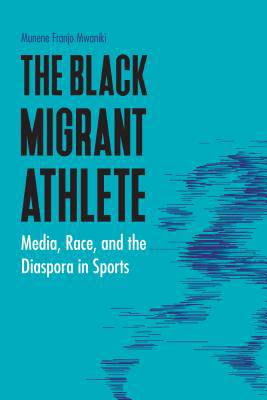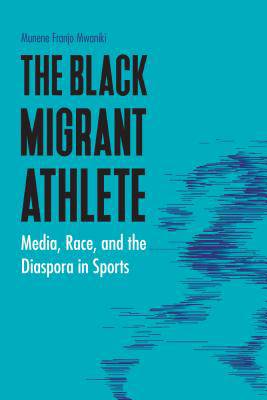
- Retrait gratuit dans votre magasin Club
- 7.000.000 titres dans notre catalogue
- Payer en toute sécurité
- Toujours un magasin près de chez vous
- Retrait gratuit dans votre magasin Club
- 7.000.0000 titres dans notre catalogue
- Payer en toute sécurité
- Toujours un magasin près de chez vous
Description
The popularity and globalization of sport have led to an ever-increasing migration of Black athletes from the global South to the United States and Western Europe. While the hegemonic ideology surrounding sport is that it brings diverse people together and ameliorates social divisions, sociologists of sport have shown this to be a gross simplification. Instead, sport and its narratives often reinforce and re-create stereotypes and social boundaries, especially regarding race and the prowess and the position of the Black athlete. Because sport is a contested terrain for maintaining and challenging racial norms and boundaries, the Black athlete has always impacted popular (white) perceptions of Blackness in a global manner.
The Black Migrant Athlete analyzes the construction of race in Western societies through a study of the Black African migrant athlete. Munene Franjo Mwaniki presents ten Black African migrant athletes as a conceptual starting point to interrogate the nuances of white supremacy and of the migrant and immigrant experience with a global perspective. By using celebrity athletes such as Hakeem Olajuwon, Dikembe Mutombo, and Catherine Ndereba as entry points into a global discourse, Mwaniki explores how these athletes are wrapped in social and cultural meanings by predominately white-owned and -dominated media organizations. Drawing from discourse analysis and cultural studies, Mwaniki examines the various power relations via media texts regarding race, gender, sexuality, class, and nationality.
Spécifications
Parties prenantes
- Auteur(s) :
- Editeur:
Contenu
- Nombre de pages :
- 270
- Langue:
- Anglais
- Collection :
Caractéristiques
- EAN:
- 9780803288478
- Date de parution :
- 01-09-17
- Format:
- Livre relié
- Format numérique:
- Genaaid
- Dimensions :
- 152 mm x 229 mm
- Poids :
- 553 g

Les avis
Nous publions uniquement les avis qui respectent les conditions requises. Consultez nos conditions pour les avis.






